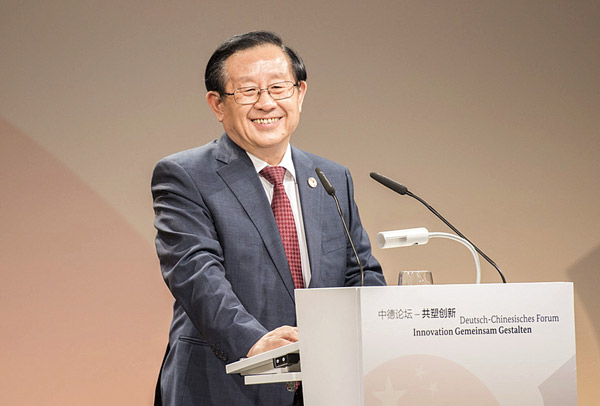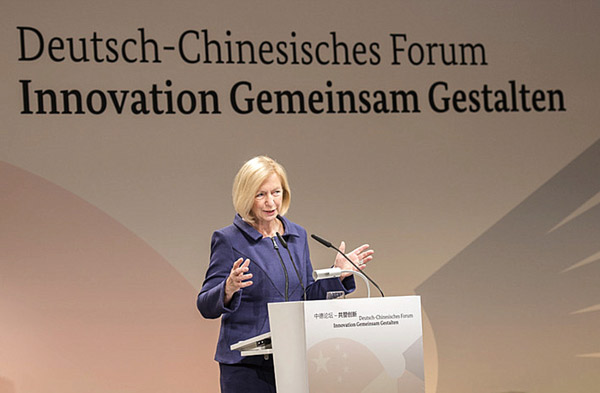

On June 1, 2017, the “China-Germany Forum: Shaping Innovation Together”, co-organized by China’s Ministry of Science and Technology (MOST) and Germany’s Federal Ministry of Education and Research (BMBF), was held in Berlin. Chinese Premier Li Keqiang joined German Chancellor Angela Merkel to attend the forum and delivered a speech, an important one during his visit in Germany. Dr. Wan Gang, Minister of Science and Technology, and Dr. Johanna Wanka, Federal Minister of Education and Research, addressed the opening ceremony.
Minister Wan pointed out that under the China-Germany all-round strategic partnership, the two sides has reached a high degree of consensus and made substantial progress in innovation in three aspects: China and Germany have aligned their scientific and technological innovation strategies by releasing the “China Strategy” and the “Germany Strategy”, which will help the two nations deal with global challenges and share responsibilities and opportunities in the face of a new industrial revolution; under the cooperation model of the Research Funding 2+2, tertiary institutions and enterprises in the two nations forge industry-wide partnerships in such sectors as electric vehicles, smart manufacturing, clean water, solid state lighting, clean energy, and future cities, so as to promote the transformation of research results and contribute to the real economy; more young people have achieved career successes thanks to China-Germany innovation cooperation, which encourages joint researches and innovative practices by tertiary institutions and enterprises that explore new areas, models and concepts of cooperation. He stressed that the two nations’ cooperation in manufacturing has proven fruitful. For instance, CRRC and Siemens have jointly developed the third-party markets to sell high-tech products to the United States and Brazil. There are also other strategic partnerships between Chinese and German enterprises, including those between Daimler and BYD, China Aerospace Science and Industry Corporation and SAP, Huawei and KUKA, and Haier and Phoenix Contact. Looking ahead, he said the MOST will team up with Germany to establish a joint funding mechanism for coordinated research and development cooperation, create more opportunities for young entrepreneurs, set up new channels for policy exchanges, action coordination, and talent mobility, forge innovation-oriented partnerships, explore more areas for cooperation, and promote innovative global economy and inclusive global growth with the help of the Belt and Road Initiative.
In her speech, Minister Wanka reviewed the two nations’ cooperation on innovative research and development over the past few years. She said the BMBF has long established cooperation with China. In recent years, the two sides have set up effective dialogue mechanisms for innovation and platforms for cooperation. She reckoned that the huge potential of bilateral cooperation on innovative research and development still remains untapped, and called on the two nations to jointly establish “innovation funding mechanisms” to facilitate collaboration between enterprises and scientific institutions in research and development.
Dr. Zhong Zhihua, President of Tongji University, and Dr. Dieter Spath, President of the German Academy of Science and Engineering gave speeches at the forum about opportunities and challenges of China-Germany cooperation on scientific and technological innovation. The forum also attracted more than 500 representatives from the business, science and academic sectors in the two countries.

